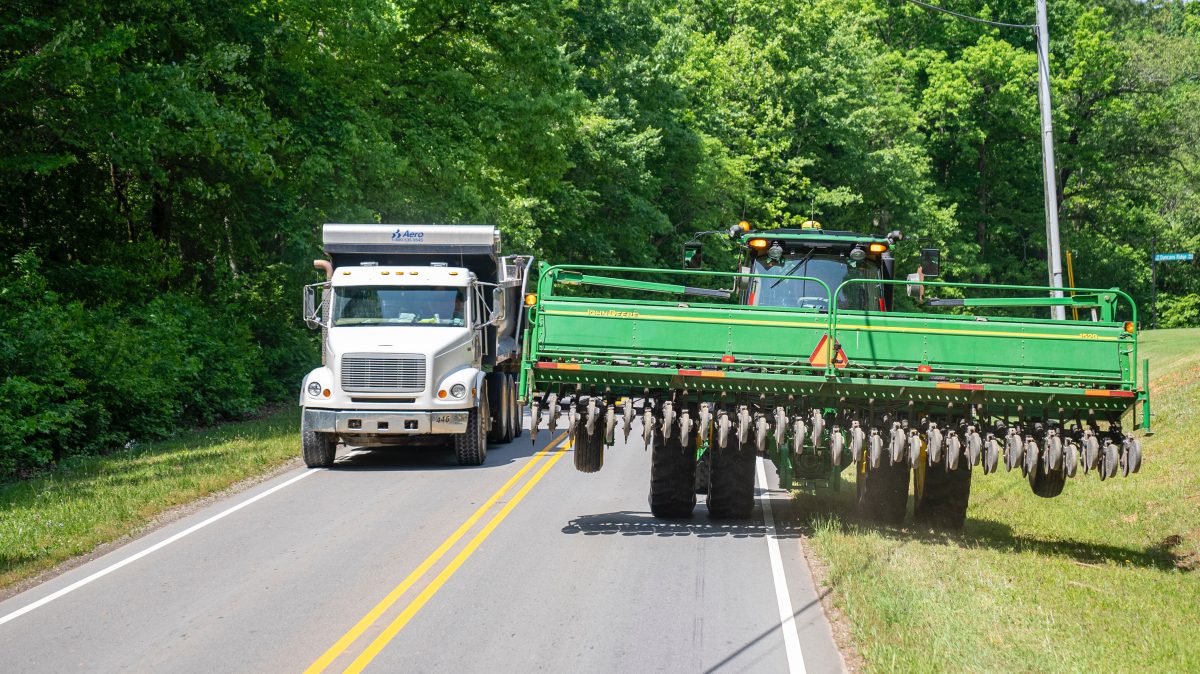Safety on the Farm: Prepare. Prevent. Protect.
TOPICS
Farm Safety & HealthZippy Duvall
President

photo credit: Mark Stebnicki, North Carolina Farm Bureau
Zippy Duvall
President
I love my farm. I love showing my grandkids the cows and the rest of the farm. And like many of you, I want to make sure they are safe throughout the entire experience. Safety is at the heart of daily life and work on the farm. Whether that’s keeping our families, friends, employees and visitors safe, or protecting the health of our animals, we should always put safety first.
The American Farm Bureau and the U.S. Agricultural Safety and Health Centers sponsor Ag Safety Awareness Program Week each year. This program, which takes place March 7-11 this year, is all about encouraging farmers to invest in safety and health in our ag communities so we can help save lives, prevent injuries and protect our animals. Safety must be a priority on the farm, not an afterthought. We can take many steps to protect ourselves and others when using equipment, interacting with animals, and checking our crops.
Safety must be a priority on the farm, not an afterthought.
When it comes to young people, most accidents they are involved with are transportation-related. That could be from large farm equipment like tractors or smaller vehicles like ATVs. Each year, over 100,000 people go to the emergency room due to an ATV injury, and about 650 people die in ATV accidents annually. And up to half of those accidents involve children. Safety steps can be as simple as taking the keys out of equipment when you’re not using it. Make sure you and others are wearing a helmet on ATVs, and be alert and attentive when operating this equipment.
We need to be careful around other farm equipment too. Augers, fans, and other moving parts have taken too many farmers’ fingers, hands, arms, and lives. In my travels, I’ve met many who have been injured this way, and they often tell me that they wish they’d been more careful or turned off the equipment before making a risky move to “save time.” We all know that accidents happen, but you can take steps to reduce the risk for yourself or someone you love.
One of my grandkids’ favorite things to do is to check on the calves when they first discover the fun of romping around the pasture. While calves and many other animals in farm country can be cute, interacting with them can be dangerous if we aren’t careful. We can teach children important, basic lessons like how to safely approach animals. It could save their lives to know never to come from behind the animal and to make sure the animal can always see you. Kids need to know that on farms they should trade their sandals and sliders for shoes or boots that cover feet and toes, with steel toed footwear offering the best protection.
While we can control risk in many situations, one thing we can’t control is Mother Nature. We need to be ready when the weather threatens our farms and families. A disaster plan and safety checklist might seem like a nuisance, but they can make the difference between life and death when a tornado is bearing down. I hope every farm and family has emergency supplies in a safe and secure place that you can get to if there is an emergency. Talking to your family and employees about what to do can save lives if disaster strikes, whether it’s a heatwave, tornado, flood, hurricane, wildfire, or another natural disaster.
I encourage you to take some time today to think about how to better prepare your farm to be a safe place for you and your family, your employees, and any visitors. We will never regret actively taking steps to prevent accidents. I’m sure we can all agree that nothing is more important on the farm than the safety of everyone who lives and works there.
Zippy Duvall
President
Vincent “Zippy” Duvall, a poultry, cattle and hay producer from Greene County, Georgia, is the 12th president of the American Farm Bureau Federation.